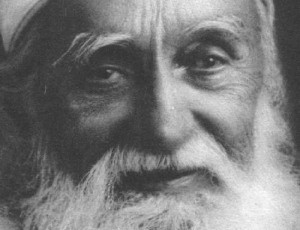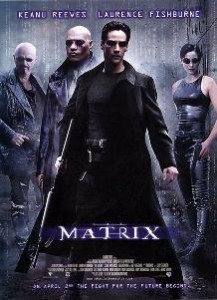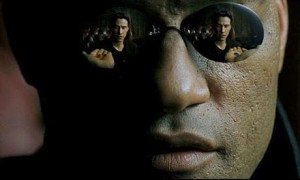The Association for Baha’i Studies is knocking the “stuffy” out of the notion that academia and intellectual pursuits are narrow, competitive, elitist and pretty darned dull. The concept of scholarship is being remade out of its old “ivory tower” paradigm into something more closely resembling a noble, shared adventure in learning. This, among many other things — the new friends I meet, the musicians I add to my playlist, the books I lust over, the writing ideas I hatch — has made the Association’s annual conference one of my greatest treats. So many smart and good-hearted people! Such outstanding, mind-altering presentations! So many confirmations of my careening efforts to “walk the spiritual path with practical feet”!
Anyway. What follows is Part One of a report on one of the highlights of the recent conference of the ABS in Irvine, California, which is (kind of) on the way from Ottawa to Dalian…
***
“So I went to the fights the other night and a hockey game broke out!” Rodney Dangerfield
It’s an old gag, but it’s still a goodie. In the same spirit, I went to the 37th annual conference of the Association for Baha’i Studies and a pop-culture laugh riot ensued. Not only did I feel happy and a little smarter at the end of that comic lecture, but nobody tried to sell me anything except ideas. This is the second time, so far as I know, that actor Rainn Wilson has spoken at one of these spirited, brainy conclaves. He brings a healthy kind of irreverence and the humour one would expect from a certified Comedy Star, but also a serious commitment to his faith community, a sharp mind and a blazing conviction that soul matters. (And no, he doesn’t speak or behave like Dwight Schrute from The Office.)
Mr. Schrute’s Wilson’s talk was designed to show that the 1999 blockbuster film The Matrix had more to it than awesome special effects and a cool visual style. He wasn’t joking, but he was hilarious. Just in case we’d forgotten, or had missed Keanu Reeves (as Neo) and Laurence Fishburne (Morpheus) and the gang when The Matrix came out, Wilson went to the video screen for a reminder. An over-caffeinated colleague from his SoulPancake website gave a comically fast summary of the movie’s plot. It sounded ridiculous, of course, but she was perky and quirky and her breathless fast-forward charmingly set up the thoughtful discussion to come. (His intent was in earnest, but Wilson couldn’t do an academic monotone if he tried. Well, not for long, anyway.) His second video clip was the famous scene in which Neo, thought to be The One who could penetrate humanity’s illusion of freedom and rescue it from slavery, is offered a simple choice: the red pill, or the blue one?
Rainn Wilson is serious about morality. He likened the choice facing Neo – take the blue pill, forget all the weird things that had happened to him, and return to a simulated life of blissful ignorance; take the red pill, see his world for what it really was and face the challenge to revolutionize it – to the decisions that caring people, most people, regularly face. He is particularly concerned by the choices that the youthful encounter every day. This, Wilson argued, is morality, which is not exactly the highest-trending topic on Twitter. It makes a lot of people uncomfortable, of course, because of the holier-than-thou attitudes that “religious” folk too often bring to the concept of what the Buddha simply called right action. Wilson offers a morality that seeks to see people (or animals, or things, or ecosystems) not as resources for us to exploit selfishly, but as spirited entities to be respected and served.
Then came something of a theological tangent, perhaps an attempt to justify the use of a loaded term like “morality”. At one impassioned point of his lecture, he complained that the concept of sin as “black marks on the soul, signs of eternal damnation” leads us away from constructive efforts to just do the right thing. He pointed out that the words for “sin” in Old Testament Hebrew and ancient Greek meant, respectively, “falling short” and “missing the mark” (harmartia, the Greek term often translated as “tragic flaw” in a dramatic context, comes from the description of a failed shot in archery). In other words, not only should we not “hate the sinner”, but we don’t even need to “hate the sin”: we just have to try again and do good by aiming better than we did before. For me, this was the heart of Wilson’s message, one aimed squarely at the young but ricocheting off all of us. And as The Matrix makes clear and awesome, this can only be done by seeing the truth of things, by finding out what reality actually is.
There is a famous statement of ‘Abdu’l-Baha, son of the Baha’i Faith’s Founder, Baha’u’llah. This eastern sage — once described as pacing “the spiritual path with practical feet” — was in the United States speaking of the journey of the soul and humanity’s quest for peace. In this 1912 talk, “matrix” has nothing to do with holographic sci-fi illusions (or does it?!), but refers to the womb of an expectant mother. Baha’is often quote this metaphor to explain the nature of the spiritual path. (They were likely unprepared for the delirious reaction of some devotees of The Matrix and its two sequels to their spiritual Master’s use of the same word nearly a century before.)

The best exemplar of the Baha’i way of living, and the son of Baha’u’llah. “Abdu’l-Baha” means “servant of Baha (glory)”, and one of these services was to bring the Baha’i teachings to wide attention in the West in the early 20th century.
“In the beginning of his human life man was embryonic in the world of the matrix. There he received capacity and endowment for the reality of human existence. The forces and powers necessary for this world were bestowed upon him in that limited condition. In this world he needed eyes; he received them potentially in the other. He needed ears; he obtained them there in readiness and preparation for his new existence. The powers requisite in this world were conferred upon him in the world of the matrix so that when he entered this realm of real existence he not only possessed all necessary functions and powers but found provision for his material sustenance awaiting him.Therefore, in this world he must prepare himself for the life beyond…”
We get the analogy: human beings develop capacities in utero which are useless in that cozy little world, but necessary to life beyond it. Likewise, say the Baha’is, in this apparently material existence we need to develop spiritual qualities. Love, perceptiveness, compassion, altruism and purity of intention not only make life on the physical plane more kindly and civilized, but also prepare us for the entirely spiritual existence that the Baha’i teachings affirm is to follow our physical life. Yet this is where Wilson’s lecture got funny again.
Part Two of Rainn Wilson’s connection of The Matrix trilogy to the moral life of the world is here. Do you dare to take the red pill?


